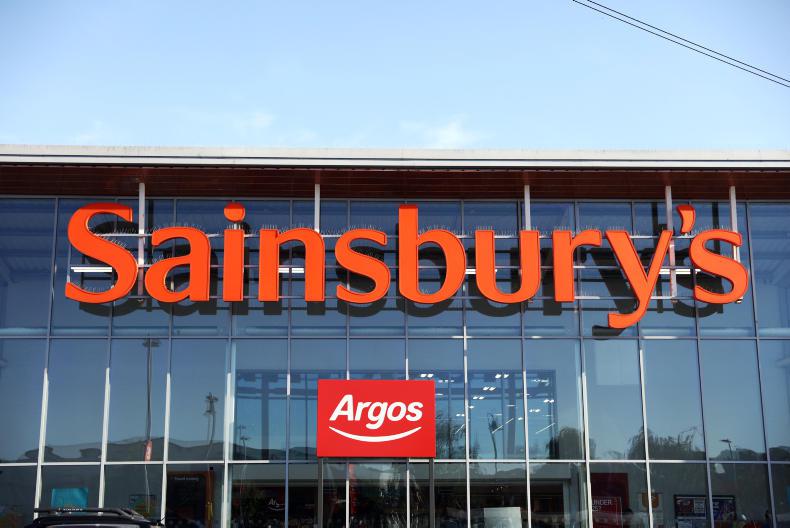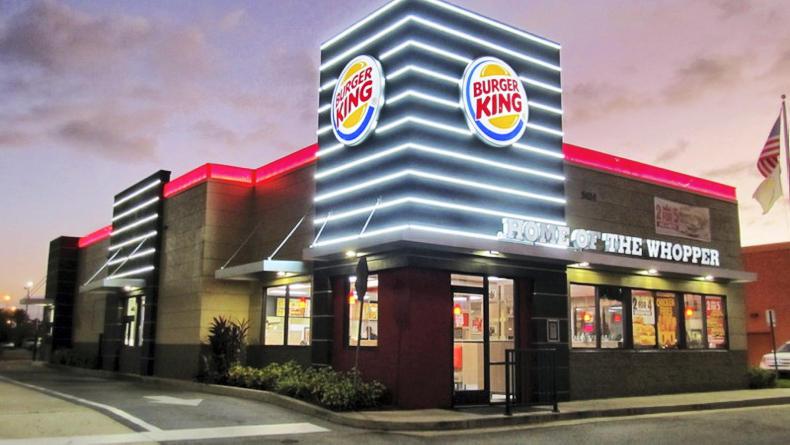Beef prices in Northern Ireland (NI) were £3.83/kg for R3 steers for week ending 13 February, which is the equivalent of €4.44/kg when converted to euro at an exchange rate of 86p=€1.
This is 66c/kg better than Irish prices, which averaged €3.78/kg for R3 grades in the same week.
This works out at €250 per head more on a 380kg steer.
UK trade supermarket-driven
Prices in the UK overall are particularly strong at present, reflecting the huge demand from British supermarkets for beef, with the preference for Red Tractor-accredited UK beef, for which NI is qualified as part of the UK.
Seven of the top 10 supermarkets in Britain stock only UK beef, while the top three - Tesco, Asda and Sainsbury's - all offer British and Irish, but the preference is for British, which makes up the majority of their offerings.

Sainsbury's offering of 92% British beef in January meant just 8% of its offering was Irish.
Asda has the biggest offering of Irish beef, according to the AHDB survey in January.
It reported that 63% of Asda’s beef offering was British, compared with 65% in the last survey in November.
As it sources only British and Irish beef, we can conclude that the rest of its offering was in fact Irish.
Tesco’s beef offering was 72% British in January, down from 77% in November, while Sainsbury's went in the other direction, increasing its British offering by 10% to 92% in January.
Exceptional consumer demand
Retail demand for beef in Britain shows no sign of slowing down, which continues to drive demand for cattle.
In the year to 24 January, consumer purchases of beef increased by 12.4% in volume, with spend up 15.5%.
This is particularly high year-on-year growth and there was no sign of a slowdown in the more recent 12-week data.
It showed volume purchases up 13%, with spend in the 12-week period increasing by 15.8%.
This is both positive and negative for Irish beef.
When there is extra demand that cannot be met by UK beef, Ireland will be the source of supply.
However, the reason retail sales are so strong is because of lockdown in the UK - the same as in Ireland.

Burger chains and take-aways are the only catering businesses open during lockdown in Britain.
Irish beef is particularly strong in the catering and wider food service sector, where there is little demand at present other than in burger chains and carry-out or home delivery outlets.
Reopening of hospitality as the year progresses will create demand for Irish beef, but it will also increase demand for other imported beef as well.
EU and global prices
Elsewhere in the EU, the strong markets are Germany, where an R3 young bull averaged €4.01/kg for week ending 13 February, and Italy, where the average was €3.90/kg.
Globally, Australia sets the pace, with a heavy MSA steer being the equivalent of €4.44/kg. This is a record high price, driven by scarcity of supply for slaughter as herd rebuilding continues.
Next door in New Zealand, it is a particularly weak price at present of just the equivalent of €2.75/kg, the weakest of all the major beef exporting nations.
Brazil, frequently the lowest, is returning €3.00/kg equivalent at present, despite a weak currency, which is trading at BRL6.59=€1, while the US price is the equivalent of €3.26kg for steers.
Read more
Beef prices: farmer frustration growing as factories play games with quotes
Farmers left 'high and dry' by beef taskforce as prices tumble
Beef prices in Northern Ireland (NI) were £3.83/kg for R3 steers for week ending 13 February, which is the equivalent of €4.44/kg when converted to euro at an exchange rate of 86p=€1.
This is 66c/kg better than Irish prices, which averaged €3.78/kg for R3 grades in the same week.
This works out at €250 per head more on a 380kg steer.
UK trade supermarket-driven
Prices in the UK overall are particularly strong at present, reflecting the huge demand from British supermarkets for beef, with the preference for Red Tractor-accredited UK beef, for which NI is qualified as part of the UK.
Seven of the top 10 supermarkets in Britain stock only UK beef, while the top three - Tesco, Asda and Sainsbury's - all offer British and Irish, but the preference is for British, which makes up the majority of their offerings.

Sainsbury's offering of 92% British beef in January meant just 8% of its offering was Irish.
Asda has the biggest offering of Irish beef, according to the AHDB survey in January.
It reported that 63% of Asda’s beef offering was British, compared with 65% in the last survey in November.
As it sources only British and Irish beef, we can conclude that the rest of its offering was in fact Irish.
Tesco’s beef offering was 72% British in January, down from 77% in November, while Sainsbury's went in the other direction, increasing its British offering by 10% to 92% in January.
Exceptional consumer demand
Retail demand for beef in Britain shows no sign of slowing down, which continues to drive demand for cattle.
In the year to 24 January, consumer purchases of beef increased by 12.4% in volume, with spend up 15.5%.
This is particularly high year-on-year growth and there was no sign of a slowdown in the more recent 12-week data.
It showed volume purchases up 13%, with spend in the 12-week period increasing by 15.8%.
This is both positive and negative for Irish beef.
When there is extra demand that cannot be met by UK beef, Ireland will be the source of supply.
However, the reason retail sales are so strong is because of lockdown in the UK - the same as in Ireland.

Burger chains and take-aways are the only catering businesses open during lockdown in Britain.
Irish beef is particularly strong in the catering and wider food service sector, where there is little demand at present other than in burger chains and carry-out or home delivery outlets.
Reopening of hospitality as the year progresses will create demand for Irish beef, but it will also increase demand for other imported beef as well.
EU and global prices
Elsewhere in the EU, the strong markets are Germany, where an R3 young bull averaged €4.01/kg for week ending 13 February, and Italy, where the average was €3.90/kg.
Globally, Australia sets the pace, with a heavy MSA steer being the equivalent of €4.44/kg. This is a record high price, driven by scarcity of supply for slaughter as herd rebuilding continues.
Next door in New Zealand, it is a particularly weak price at present of just the equivalent of €2.75/kg, the weakest of all the major beef exporting nations.
Brazil, frequently the lowest, is returning €3.00/kg equivalent at present, despite a weak currency, which is trading at BRL6.59=€1, while the US price is the equivalent of €3.26kg for steers.
Read more
Beef prices: farmer frustration growing as factories play games with quotes
Farmers left 'high and dry' by beef taskforce as prices tumble








 This is a subscriber-only article
This is a subscriber-only article











SHARING OPTIONS: